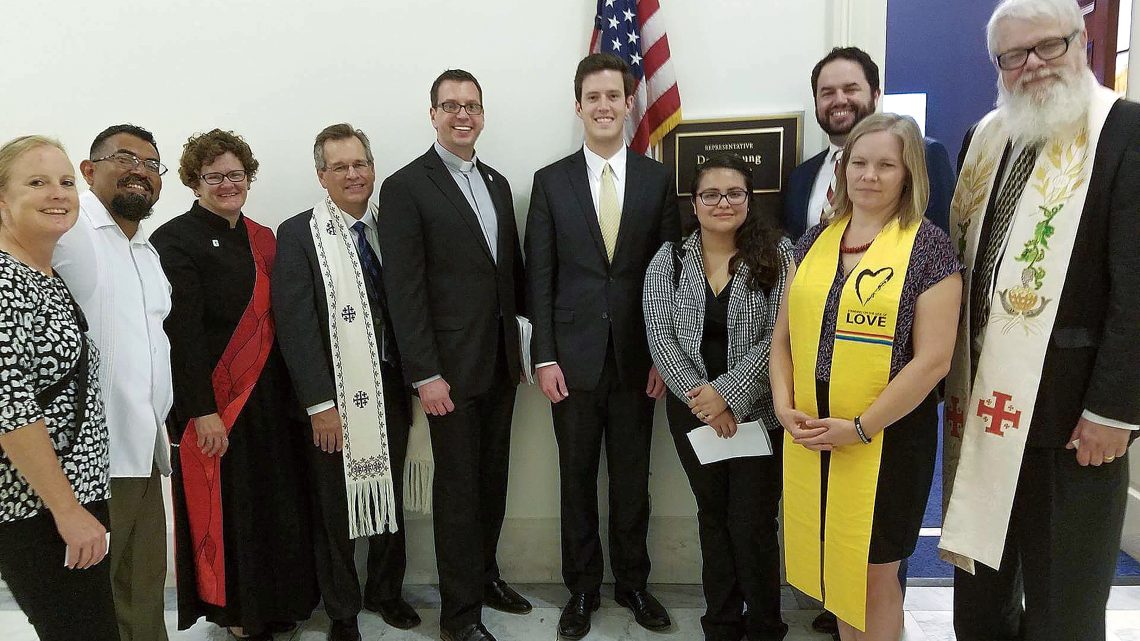Following President Trump’s announcement in September that the Deferred Action for Childhood Arrivals (DACA) program enacted by President Obama would be rescinded and that it would be up to Congress to resolve an issue affecting the lives of nearly 800,000 people brought to the United States illegally as children by their parents, Matthew Lucio, pastor of the Charles City, Hampton and Mason City churches, traveled to Washington D.C. to share his personal convictions with Congress. Below are his reflections from the trip.
I stood confused in a Washington D.C. congressional office at what I had just heard. A top aide had just told a group of pastors that the congressman he worked for was a Christian. One of the pastors then made a casual remark about being reassured that the congressman was a religious man. The aide was quick to correct the pastor: “I didn’t say he was religious. He wouldn’t describe himself as religious.” Silence followed as ten preachers tried to make sense of that comment. Surely the congressman was aware that Christianity was a religion—in fact the largest religion in the world?
We had arrived in Washington specifically to talk to Congress about helping the children of illegal immigrants, most of whom pay taxes, go to school, work, and—at least in the case of many—go to church. With recent political events, these individuals, once assured of a stable life provided they worked hard and kept their noses out of trouble, were at risk.
One of these kids goes to my church. I went to Washington to let Congress know I believe Christian legislators should be looking out for them. It’s not a conservative or liberal issue—and I was heartened to find compassion from members of both political parties.
The trip became about more than advocating for the vulnerable in our midst; it also became a chance to talk to legislators about their faith. We had prayer in House Minority Leader Nancy Pelosi’s office with some rather bewildered aides. We prayed over meals in the House cafeteria.
It seems there’s a lot of spiritual confusion among even professed Christian congresspersons. I shared Leviticus 19:33-34, which says that the ancient Israelites were to treat the foreigners as if they were citizens.
“Well,” came a reply, “you cannot expect us to make the Bible into law.”
“Of course not,” I responded. “But as a matter of principle shouldn’t these ancient laws inform Christian attitudes on modern problems?”
While the response to my question wasn’t reassuring, overall I felt satisfied that whatever the legislative outcome, a group of pastors was able to let their representatives know that they care not only about the DACA kids, but also about their representatives. Caring for “the least of these” sometimes takes us to Capitol Hill, though more often it takes us to the food pantry. It felt good to go the extra mile to speak for that child in my congregation.
But I also realized that I need to pray more for our members of Congress. It’s easy to dismiss “Washington” as many dismal things, but there are Christians there who are earnestly trying to sort out what it means to be a Christian legislator. They face confusing and compromising pressures that you and I do not. Won’t you join me in praying for them?










